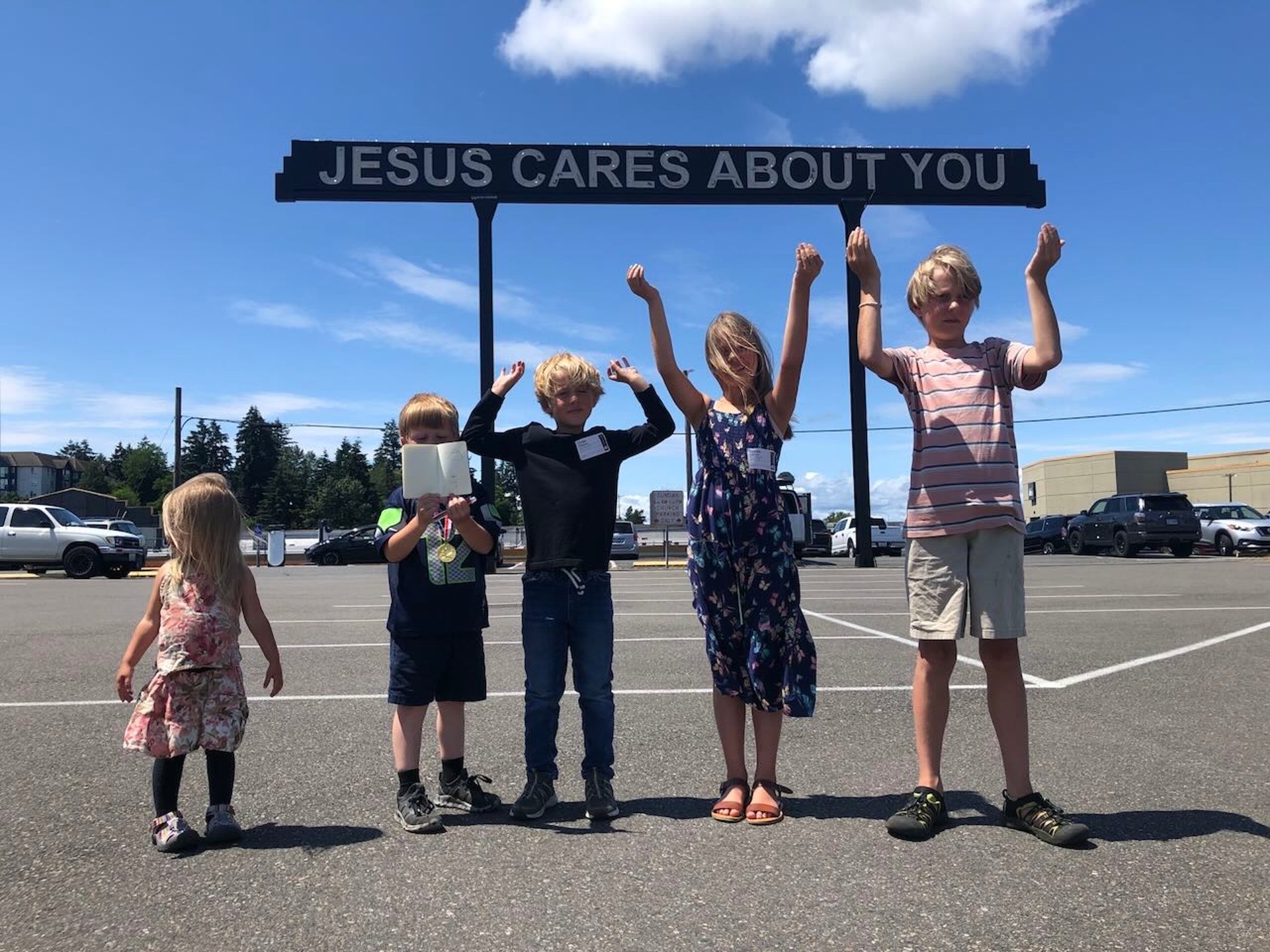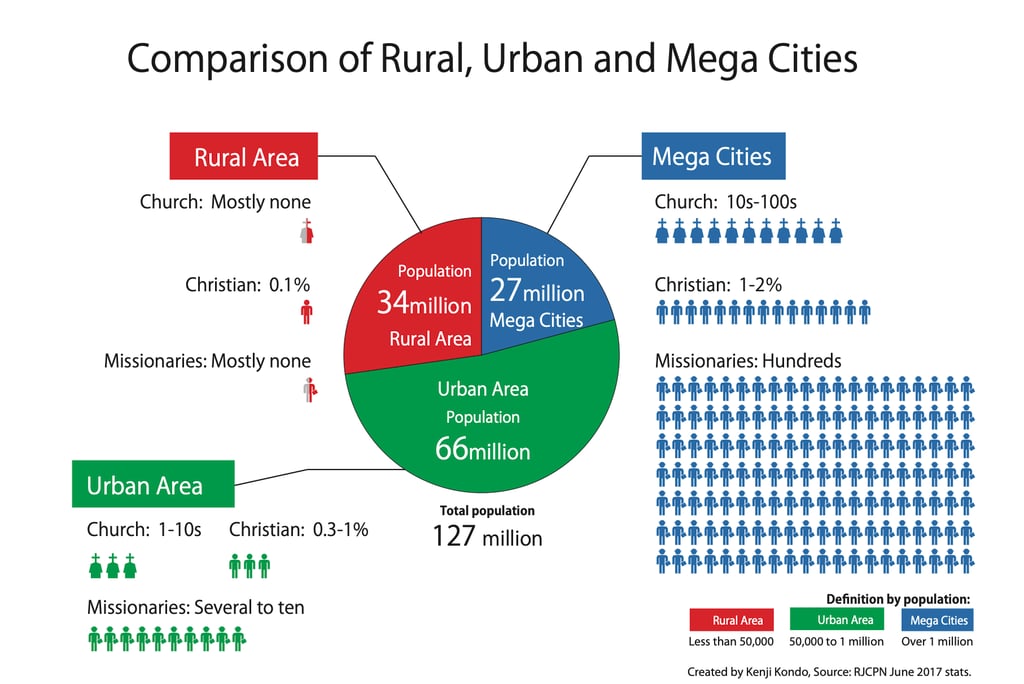
Why Rural Japan
Japan
Reference: Rural Japan Church Planting Network
The information on this page is taken directly from the Rural Church Planting Network's Webpage:
In recent decades, almost all missionaries serve in Mega Cities or other urban areas, and very few in rural areas. At present, less than 100 of Japan’s 1560 foreign missionaries serve in rural areas. 90-95% serve in urban areas that already have one to several churches. There are needs in all segments, but the data above reveal an imbalance in the proportion of urban and rural missionaries and also in their geographical distribution among prefectures. For example, in the prefectures with a high proportion of unchurched areas, there are almost no missionaries, and in the few with a high proportion of churched areas, there are many.
Given the shortage of workers and tremendous need in rural Japan’s unchurched areas,
Many pioneer missionaries from overseas and within Japan need to be raised up, commissioned, and released to plant churches in areas that lack their first church, and
Many urban churches in Japan need to be plant daughter churches in the subset of unchurched rural areas that are nearby.
Lack of Local Gospel Access
While urban areas definitely need ongoing evangelism and some need more churches, their residents already have some gospel access. These churches can also take responsibility to accomplish much of the ongoing outreach in their respective cities. However, residents of 2/3 of Japan’s rural areas live in areas without even one church. Areas with no church at all need to be highly prioritized since their residents have no meaningful access to the gospel where they live. Cross-cultural missionaries share a special responsibility for areas with no local gospel access. By going or raising up a church planter to go to an unchurched area, you can bring gospel access to a place where there is none.
Insufficiency of a trickle-down effect from urban churches.
If it hasn’t happened after 170 years, it clearly isn’t going to without intentionality in reaching rural areas. The trickle-down effect to rural Japan has not occurred due to: distance from urban churched areas, and limited nearby human resources; lack of church planting vision; transportation realities; no local believers, or a few who often are afraid to live openly as Christians in their rural home towns; missionary mobilization and first term training approaches that unwittingly reduce rural placements; challenges to retaining pioneer foreign and national missionaries for rural Japan; and the void created when some groups that once played a large role in rural outreach lost an evangelistic focus several decades ago. Intentionality will be needed in order to turn the tide.


